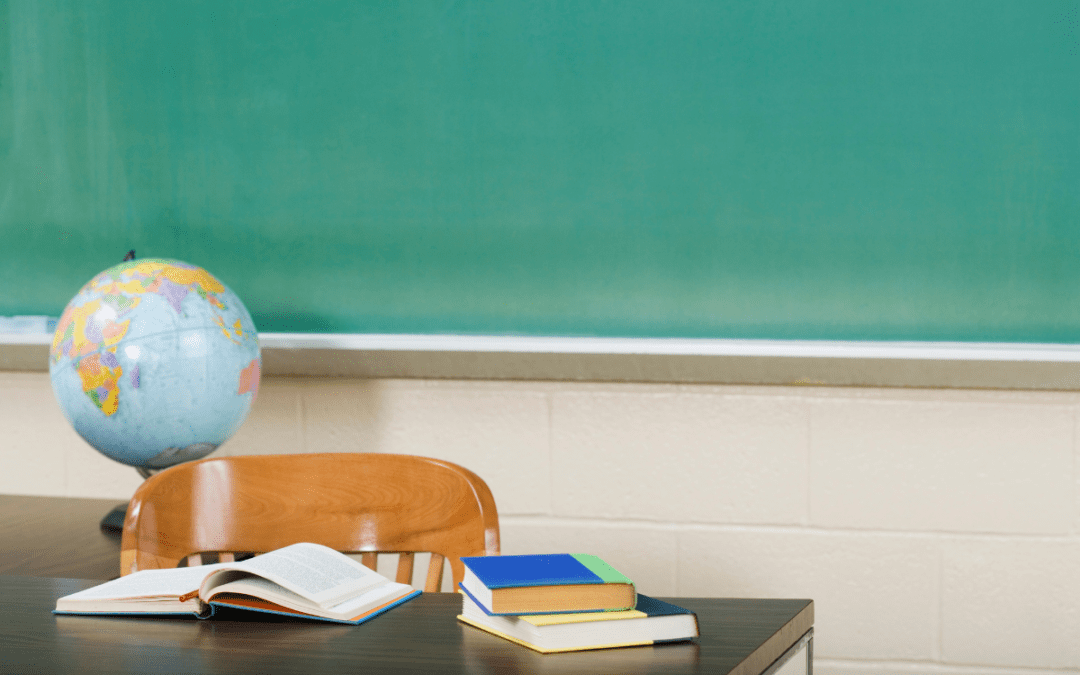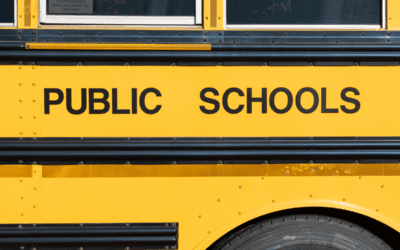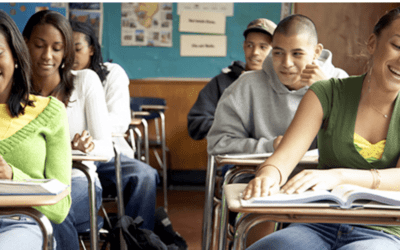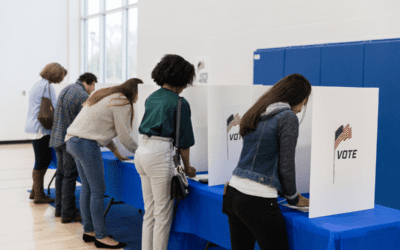
#image_title
Decisions by conservative courts come barely 12 hours before the polls open
The Wisconsin Supreme Court and the Supreme Court of the United States dealt Wisconsin voters two last-minute decisions Monday, ruling that Tuesday’s election will be held and that absentee ballots must now be postmarked by Tuesday.
The decisions by the conservative-leaning courts follow weeks of back-and-forth between Democratic Gov. Tony Evers and the Republican-controlled Legislature.
Evers and GOP leaders, Sen. Scott Fitzgerald, R-Juneau, and Rep. Robin Vos, R-Rochester, had been in agreement that the election should proceed as scheduled but Evers, citing the increasing spread of the coronavirus and the subsequent closure of dozens of polling sites across the state, began voicing concern late last week and called a special session for Saturday to consider a delay.
“There is no shame in reversing course to save people’s lives,” Evers said.
Monday, he signed an executive order suspending Tuesday’s election until June 9. Republican lawmakers immediately filed suit. By late afternoon, the State Supreme Court ruled 4-2 that the governor “does not have the authority to unilaterally suspend or otherwise alter Wisconsin’s election statutes.”
Hours later, the U.S. Supreme Court ruled on a separate case brought by the Republican National Committee, Republican Party of Wisconsin and the state’s top two Republican leaders that challenged the extended deadline by which absentee ballots could be counted in Tuesday’s election.
More than 1 million absentee ballots have been requested throughout Wisconsin, making it nearly impossible for those ballots to be counted on April 7.
Last week, a federal judge sided with left-leaning groups and allowed the deadline for absentee ballots to be counted until Monday, April 13. The 7th Circuit Court of Appeals upheld the decision, paving the way for an appeal to the Supreme Court that was decided Monday evening.
The ruling determined absentee ballots must be postmarked by April 7. This means registered voters who have requested an absentee ballot but do not receive it and return it Tuesday must vote in-person if they want their vote to be counted.
The best way to ensure a ballot is postmarked April 7 is to mail it from a post office, rather than a mailbox.
Absentee ballots postmarked later than April 7 will no longer be counted. Election results will be made public Monday, April 13.
While Republican lawmakers praised the decisions of both courts, Evers and other Democrats expressed concern over pitting a person’s decision to protect their health against exercising their right to vote.
“There are few things we hold more sacred and that are more American than the right to vote. People have bled, fought, and died for the right to vote in this country,” said Evers in a statement. “But tomorrow in Wisconsin, thousands will wake up and have to choose between exercising their right to vote and staying healthy and safe.”
To date, at least 77 people have died in Wisconsin because of the coronavirus and 2,440 have tested positive, according to state Department of Health Services data.
“In-person voting (Tuesday) would, without question, increase the spread of COVID-19,” said DHS Sec. Andrea Palm Monday afternoon prior to the two court rulings.
In writing the Supreme Court’s dissent, Justice Ruth Bader Ginsburg said the question before the court is really “whether tens of thousands of Wisconsin citizens can vote safely in the midst of a pandemic.”
“With the majority’s stay in place, that will not be possible,” Ginsburg wrote of the court’s majority decision to no longer allow absentee ballots to be postmarked later than April 7. “Either they will have to brave the polls, endangering their own and others’ safety. Or they will lose their right to vote, through no fault of their own.”
She also cited a surge in absentee ballot requests that has “overwhelmed election officials who face a huge backlog is sending ballots.”
“As of Sunday morning, 12,000 ballots reportedly had not yet been mailed out. It takes days for a mailed ballot ro reach recipients – the postal service recommends budgeting a week – even without accounting for pandemic-induced mail delays,” Ginsburg wrote. “It is therefore likely that ballots not yet mailed will not reach voters by tomorrow; for ballots not yet mailed, late arrival is all but certain.”
Wisconsin’s conservative-leaning court took a mere two hours to rule against the governor’s last-minute attempt to suspend Tuesday’s election, voting 4-2 to block Gov. Tony Evers’ executive order.
Daniel Kelley, a conservative judge on Tuesday’s ballot, recused himself from the vote. The one-page decision issued by the court did not provide any reasons for the decision.
If the court had sided with Evers, the election would have been suspended until June 9 date or another date determined by the Legislature. His executive order also called for the Legislature to convene at 2 p.m. Tuesday to determine that date.
Evers had told reporters during a conference call earlier Tuesday that he would not appeal the decision.
“This is it. There is no Plan B. There is no Plan C,” Evers told reporters.
In their second emergency session of the day Monday night, Wisconsin Elections Commission members met the rulings with mixed reactions.
“Why would anyone want to proceed with an in-person election in the middle of COVID-19?” said Commissioner Mark Thomsen during a fiery response to fellow commissioners Dean Knudson and Bob Spindell, who were happy with the rulings.
Knudson, a former Republican state representative, played down concerns of the potential for in-person voting spreading the virus. He said voters should go to polling places in “off-peak hours.”
“Even during times of war and pandemic worse than our current crisis, we still go to the polls to elect our leaders,” he said.
Thomsen and Commissioner Ann Jacobs said thousands of absentee ballots will likely be lost in the mail or never get to voters due to extreme load on the United States Postal Service.
“The glee with which this is being extolled as a victory is astonishing,” Jacobs said. “We should be embarrassed that this many votes are not going to be counted.”
Evers said he had the authority to issue the order based on worsening conditions associated with the spread of the coronavirus and his constitutional duty to “insure domestic tranquility and promote general welfare, and, as governor, I made an oath to uphold the Wisconsin Constitution.”
Evers based his decision to issue the order on public health concerns and the inability of the Legislature, which seldom agrees with him or works collaboratively with him, to solve this issue. Evers called Friday for a special session of the Legislature.
When Monday morning came and went without lawmakers meeting, Evers said he took action.
In his order, Evers cites events leading up to his decision, including declaring a public health emergency on March 12 in Wisconsin; President Donald Trump’s proclamation a day later declaring a national emergency due to COVID 19, and the Wisconsin Supreme Court’s decision to delay jury trials until May 22.
Evers said the consolidation of polling locations due to the fear among poll workers that they could be exposed to the virus if they interacted with the public on Election Day played a big factor in his decision as well.
His order states the city of Waukesha has consolidated its polling locations from 15 to one, the city of Milwaukee has consolidated its polling locations from 182 to five locations – a loss of over 97 percent of its polling locations – and the city of Green Bay has consolidated its polling locations from 31 to 2 locations.
Consolidation to that level would make social distancing extremely difficult, Palm said.
Except for Milwaukee, poll staffing is in far better shape than it was a week ago, when more than 100 municipalities faced a critical poll worker shortage. About 2,500 National Guardsmen have been deployed to work polls throughout the state, a number that ensured each polling place has the requisite number of workers, according to WEC Administrator Meagan Wolfe.
And while another 500 guardsmen are on call in case polling places have issues during the day on Tuesday, the number of guardsmen who have been assigned to Milwaukees still only allows for the state’s largest city to open five of its more than 180 usual polling locations.
“Today I think is a very, very profoundly sad day for Wisconsin and for America and for our democracy,” Thomsen said.
Jonathon Sadowski contributed to this report.

Opinion: Many to thank in fair maps victory for Wisconsinites
On February 19, 2024, Governor Tony Evers signed into law new and fair state legislative maps, bringing hope for an end to over a decade of...

Opinion: Empowering educators: A call for negotiation rights in Wisconsin
This week marks “Public Schools Week,” highlighting the dedication of teachers, paras, custodians, secretaries and others who collaborate with...

Op-ed: Trump’s journey from hosting The Apprentice to being the biggest loser
Leading up to the 2016 election, Donald Trump crafted an image of himself as a successful businessman and a winner. But in reality, Trump has a long...

Not just abortion: IVF ruling next phase in the right’s war on reproductive freedom
Nearly two years after the US Supreme Court overturned Roe v. Wade, another court is using that ruling to go after one of the anti-abortion right’s...




